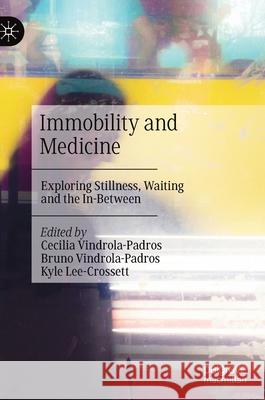Immobility and Medicine: Exploring Stillness, Waiting and the In-Between » książka
topmenu
Immobility and Medicine: Exploring Stillness, Waiting and the In-Between
ISBN-13: 9789811549755 / Angielski / Twarda / 2020 / 278 str.
Kategorie:
Kategorie BISAC:
Wydawca:
Palgrave MacMillan
Język:
Angielski
ISBN-13:
9789811549755
Rok wydania:
2020
Wydanie:
2021
Ilość stron:
278
Waga:
0.50 kg
Wymiary:
21.01 x 14.81 x 1.75
Oprawa:
Twarda
Wolumenów:
01
Dodatkowe informacje:
Wydanie ilustrowane











